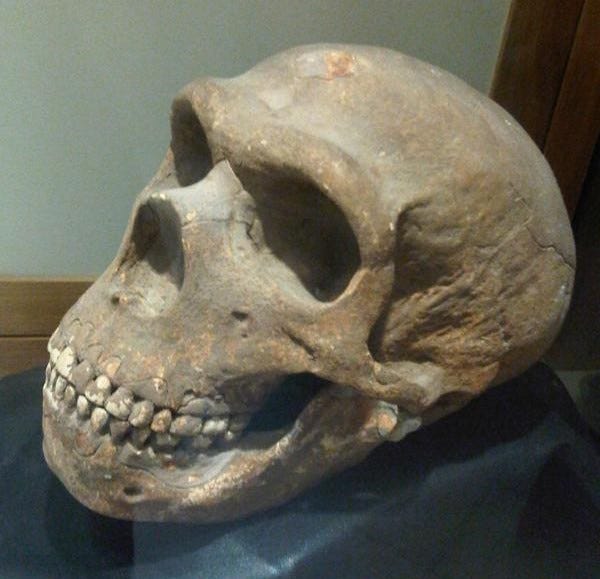Fiction, the cognitive revolution, and the environment – on Harari and Sapiens
First, a question seeking an explanation: Do stories make us human? Or more precisely, are stories what allowed the genus homo (or “human”) to sprout the species we call sapiens? It’s a variant of the question: Why do I like fiction? Why do we – we sapiens – write fictions?
Second, one looking for a prescription: Is engaging in fiction, self-acknowledged untruth, a good thing?
Readers of this Substack will know that I spend a lot of time with fiction. I must value it. The wealth of fiction in our consumption of entertainment – films, long-format television, novels, children's picture books – suggests that human beings – or more precisely, homo sapiens – share that value.
I’ve been reading the much-lauded book Sapiens, by the much-admired author Yuval Noah Harari. The second chapter tells us that 70,000 years ago, the “cognitive revolution” of the sapiens – that is, our ability to create fiction in general, as well as individual fictions – allowed the new species to out-compete neanderthal humans to extinction. That ability allowed sapiens to organize societies larger than, say, fifteen individuals and thus to share tasks of finding and creating food and shelters, to hunt to cultivate the land in coordinated ways to provide food and security. Sapiens engaged in the work of “bypassing the genome” (Harari, 2015, p. 36). It allowed us – us sapiens – to defy the simpler versions of natural selection.
Fictions allowed myths to develop, which in turn permitted belief systems to develop, giving meaning to collaborative activities. Collaboration in turn allowed sapiens to overcome their manifest physical inferiority, compared with earlier and overlapping homos – the neanderthal and erectus – in the competition for control over territory. It allowed them (that is, us) to dominate the earth. Harari writes (p. 43):
Thanks to their ability to invent fiction, Sapiens create more and more complex games, which each generation develops and elaborates even further.
History – the story of this species – takes over from biology. And overtakes it.
Harari’s book is an example of popular accounts of academic studies, without much of the apparatus that helps us separate detailed analysis from speculative assertion. For example, the term “cognitive revolution” appears in much academic literature, a good portion of which says that the revolution came not 70,000 years ago, but in the second half of the twentieth century, when psychologists starting emphasizing “cognition” over other expressions of mental activity, like rationality. What is Harari’s source? (He gives none.) In many areas, academic critiques of the book have harped on its weak sourcing and its flirtations with the speculative. But let’s just agree that he uses the term in a very different sense than those authors.
For Harari, that shift is marked by the period when encampments became larger, when lives of hunting and gathering slowly shifted toward the agricultural revolution that followed some 12,000 years ago, and then toward the scientific revolution 500 years ago, and then the industrial revolution 300 years later. So far, so beneficial.
Each of these revolutions supported larger societies. Commonly held stories, myths, beliefs allowed tribes to give way to towns, to cities, to nation states. Collaboration between sapiens led to greater specialization in the work of individuals, accelerating their (our) disconnect from the ecosystem. The tools and talents developed allowed evolution itself to slow. Instead of natural selection favoring those better able to adapt, sapiens adapted the environment to their existing gene pool. Evolution has slowed. The current population is – at the level of individuals – less well adapted than ever to the environment in which we live. Few people have any idea how to make clothing to keep ourselves warm in the winter, or even how to light a fire with matches, let alone without them. So far, so plausible. But Harari goes further.
Is fiction also the culprit for the failings of homo sapiens? Or more precisely, should we blame our genes – our ability to create stories and to value them – for the degradation of the environment? For the intensity of warfare? For the extinction of species, including the species of our close relatives, homo neanderthal, homo erectus?
Much work on the overlapping parts of literary theory and psychology – the realm we call theory of mind – puts a positive spin on fiction. Various studies (e.g., Cohen, 2021; Fischer, 2017) suggest that fiction helps people build empathy with others, that is the ability to understand what the other, and the more general others, must be thinking and feeling, even if we cannot know that.
For example, the literary theorist Jukka Mikkonen (2015) argues that understanding “outperforms” knowledge in in describing the “enlarged comprehension” that people gain from engaging with literary works. Knowledge here is cognitive and reasoned; understanding – the “enlarged comprehension” – evokes emotions as well and the unspoken “sense” we make of things.
Arguing for a cognitive approach to understanding representational works of art, including fiction, John Gibson (2008) says that art makes possible a kind of philosophical knowledge.
[M]any of our most prized cognitive pursuits regularly enlist fictions – and, more generally, the imagination – in their pursuit of knowledge (p. 580).
Philosophers and physical scientists alike conduct thought experiments – a form of storytelling. But that’s a narrow view of what art, and specifically fiction, does. It assumes there is a “surrounding argumentation,” something much art plainly lacks.
Gibson then suggests that art in general, and with it fiction, affords opportunities to develop experiential knowledge, experiencing vicariously worlds we cannot visit in person. This too is a problematic of the value of art, he suggests, because such knowledge is subjective, created by the beholder, the reader, not necessarily the work of art. (NB: Readers of this Substack will see parallels to John Dewey’s aesthetics, in which reading is itself a creative function.)
Such an attempt to see the value in fiction(s) having its roots in cognition has virtues. It points to something of instrumental value: Fiction helps people cope with a hostile environment. But, as Gibson concludes, it falls short of showing the humanistic dimension that many value in art, the sense of communing with something larger than oneself, or than life itself.
What Harari seems to argue is the opposite, however: Fictions that allow “humanism” – or better put “sapien-ism” – to form at all. That may an important source of the discomfort we create by forcing the environment to adapt to us.
Perhaps different fictions – those arising from the problems that now defy human knowledge – also promise a route to understanding and “enlarged comprehension.”
Cohen, P. M. (2021). Of Human Kindness: What Shakespeare Teaches Us About Empathy. New Haven, CT: Yale University Press.
Fischer, M. (2017). Literature and Empathy. Philosophy and Literature, 41(2), 431-464.
Gibson, J. (2008). Cognitivism and the Arts. Philosophy Compass, 3(4), 573-589. doi:https://doi.org/10.1111/j.1747-9991.2008.00144.x
Harari, Y. N. (2015). Sapiens: A Brief History of Humankind (J. Purcell & H. Watzman, Trans.). London: Vintage.
Mikkonen, J. (2015). On Studying the Cognitive Value of Literature. The Journal of Aesthetics and Art Criticism, 73(3), 273-282. doi:https://doi.org/10.1111/jaac.12172





